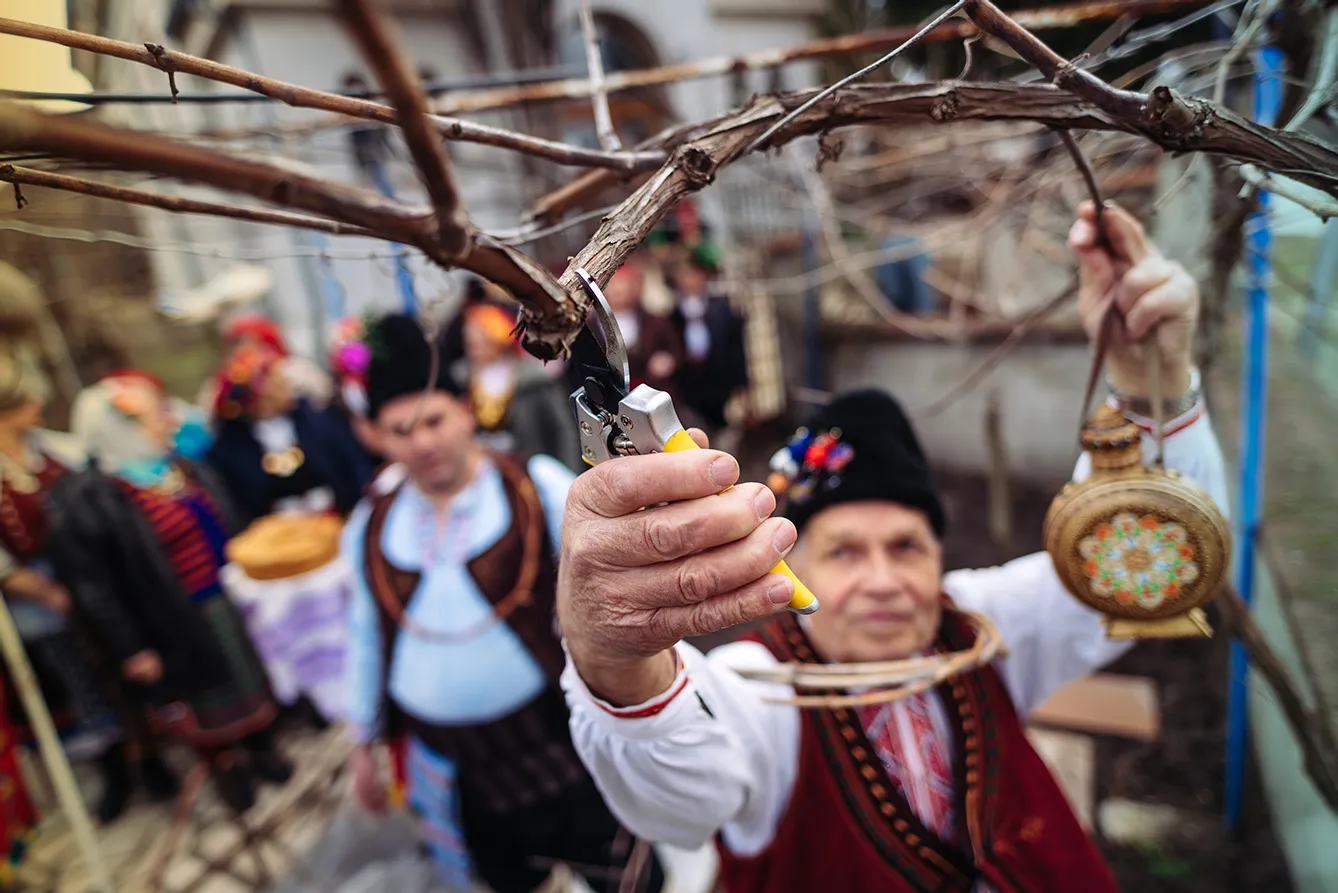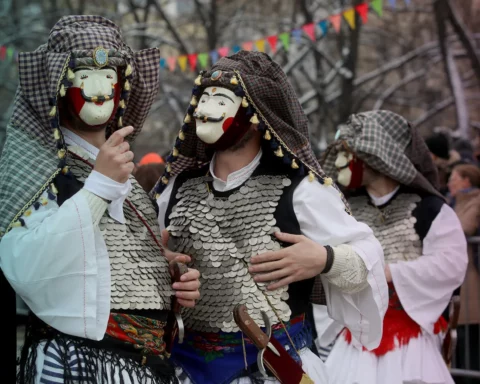Historical records indicate that the ancient Thracians carried the grapevine from the Near and Middle East to the area of today’s Southern Bulgaria, along the Maritza River, the Black Sea Coast, and the Strandzha Mountains. It was the oldest inhabitants of the Balkan Peninsula who created a cult of wine and used it as a ritual gift for their deities. The wine produced by the Thracians was so aromatic and strong that the ancient Greek hero Odysseus used it to drug a cyclops in a quest to save his friends, according to the ancient work of Homer.
Another ancient Greek author, Xenophon, depicts his visit to the Thracian King Seuthes III in 400 BC. He describes how the ruler drank wine from a horn and poured the remainder over his head. Fast forward to today when the ritual is still being observed, this time in honor of Saint Tryphon and the goods he protects.
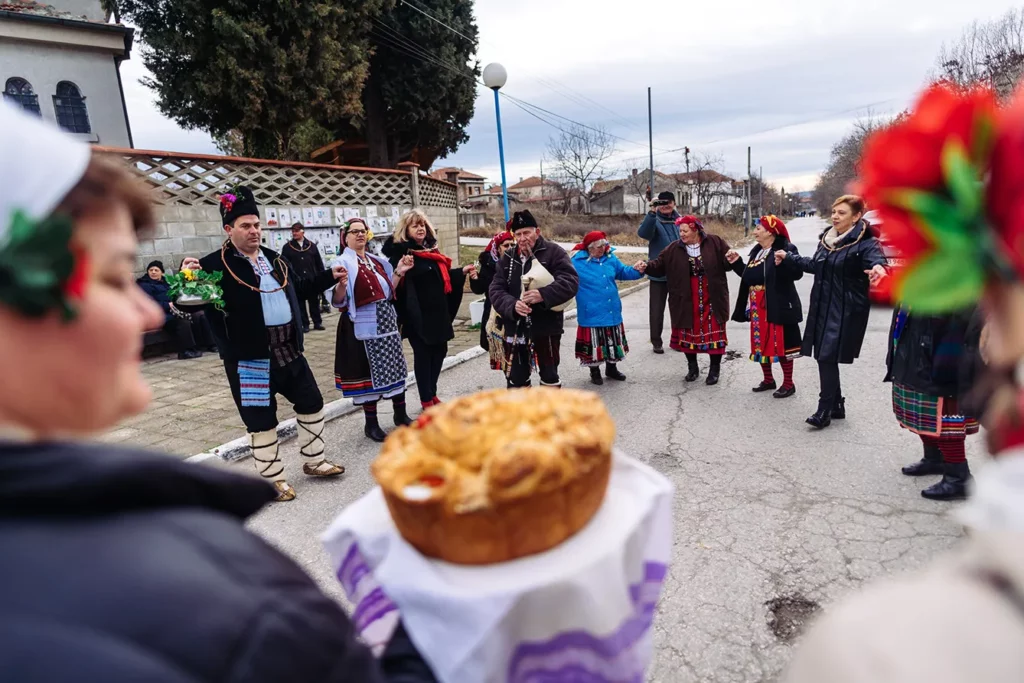
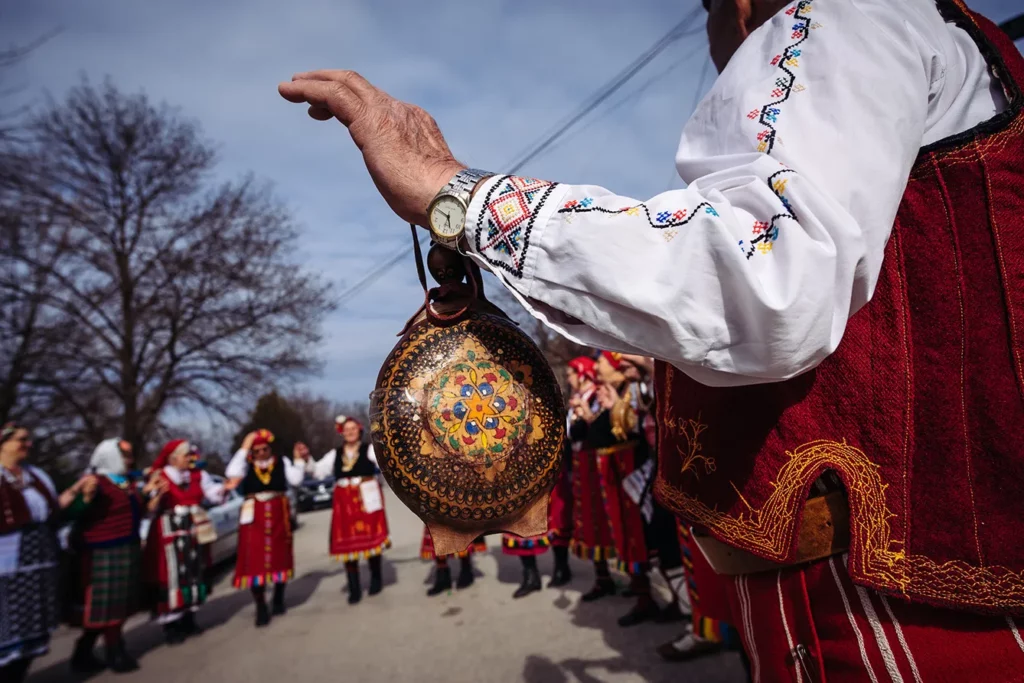
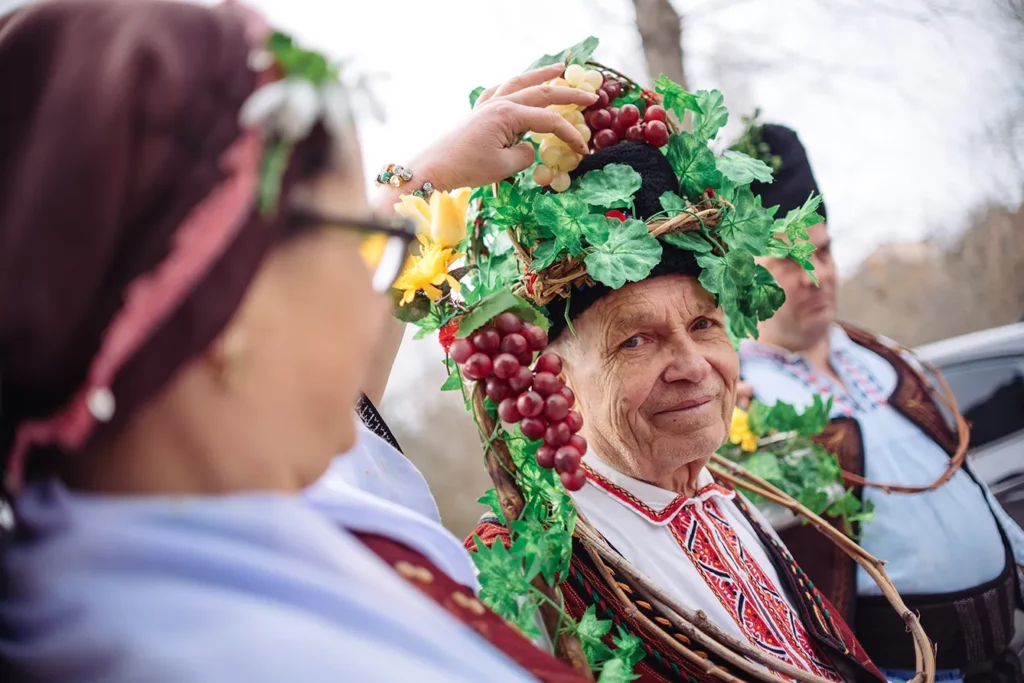
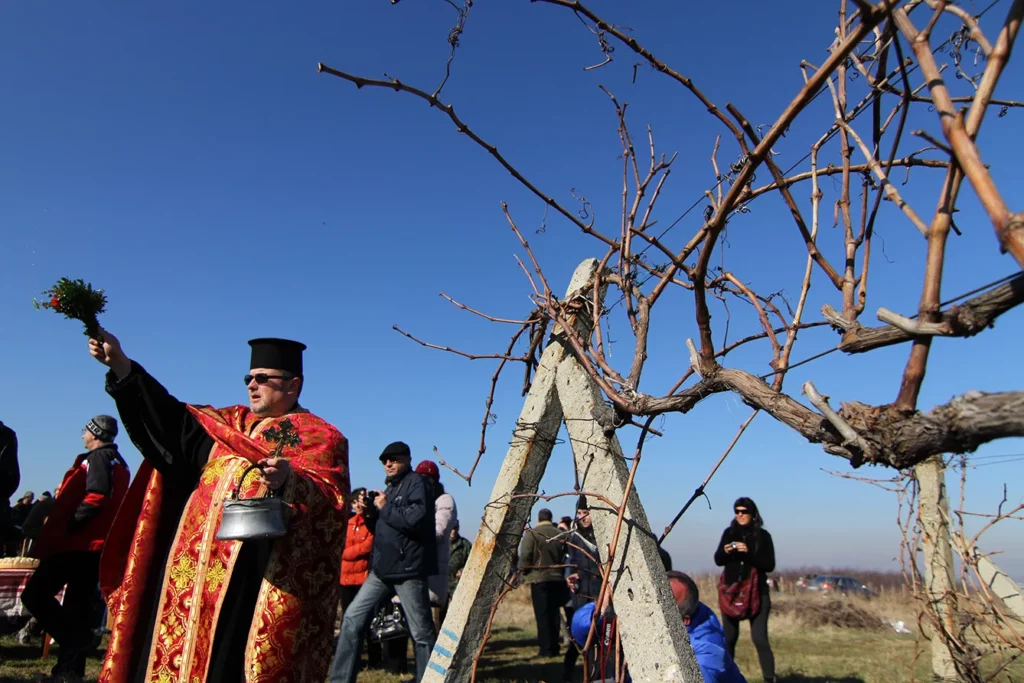
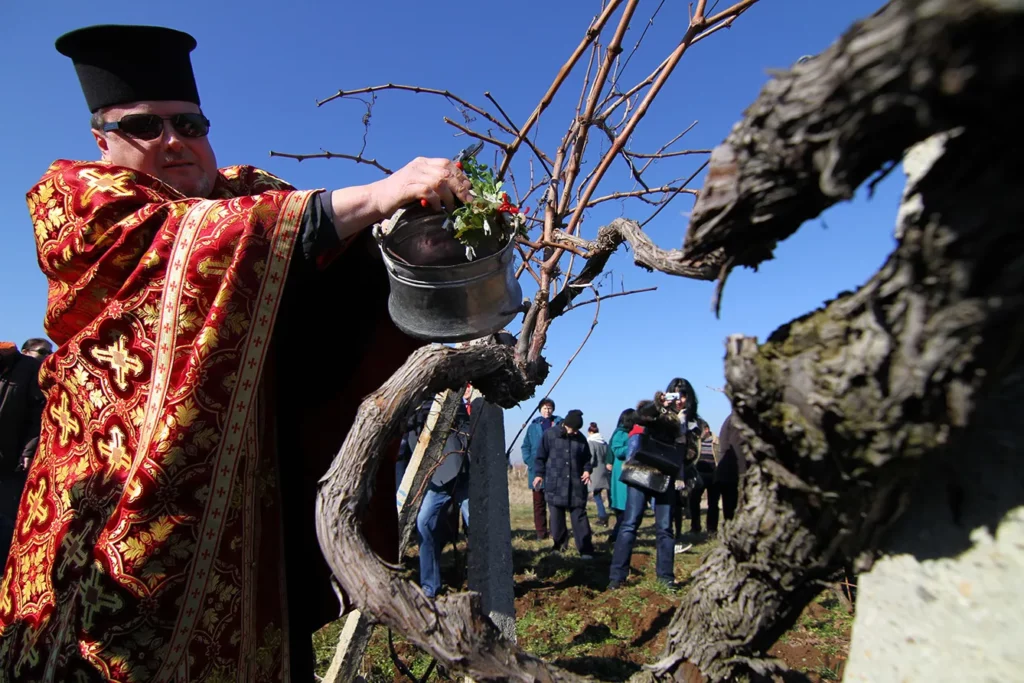
On February 1st, Bulgaria marks the Feast of Saint Tryphon. And then, two weeks later, Bulgarian winemakers turn again to their protector on February 14th, this time in line with the Gregorian calendar. On this special day, winemakers pour wine on the vines. It is believed that the more wine, the more abundant the new harvest of grapes and wine will be.
Saint Tryphon, the Bulgarian Dionysus
The festival, also marked by a vine pruning ceremony, is also associated with the ancient Greek god of wine, Dionysus (Bacchus to the Romans). To pay their respect to the ancient god, winemakers in Bulgaria symbolically elect their own king, who, just like Dionysus, wears a wreath of vine branches on his head. The “king” then pronounces blessings for a rich harvest from… where else… the vineyards. To follow up, the winemakers symbolically prune the vines, thus marking the first farming work of the new agricultural season. Trifon Zarezan, as the wine holiday is known in Bulgaria, ends with a feast in the house of the “king,” where wine is poured generously.
As beautiful as the tradition is, do Bulgarian winemakers have reason to celebrate?
The fact that winemaking has been present on these lands for thousands of years is not enough to propel the industry to new heights. Revered for its wine in many countries behind the Iron Curtain, Bulgaria was not only a top exporter among socialist countries, mainly to the USSR but also among the biggest global exporters of wine at the height of its wine industry. The years after the sweeping political changes of the late 1980s, Bulgaria’s wine sector was marked by decline and, now, by soul searching.
“Some of the issues the industry is still dealing with stem from the fact that for too long Bulgarian wine has been marketed for a conservative audience which only likes their wine a certain way. Some wineries are still making wine from muscle memory, so the result might be a little boring, at least for those looking for something new,” Denitsa Hristova, the authoritative voice behind the Vino_Noir_Stories page on Instagram, tells 3Seas Europe.
Too comfortable for too long
Bulgarian wines, although seen as classically good, can benefit from a revamp paired with more visibility abroad, that winemakers whom 3Seas Europe spoke with for this story agree. “Unfortunately, Bulgaria has long lost its position as a major wine producer. Production and exports have significantly decreased over the years. In recent years, however, we have been trying to present Bulgarian wine through our local grape varieties. This is one of the ways to develop a specific style and recognition,” says Stanimir Stoyanov, chairman of the Union of Enologists in Bulgaria.
But finding those innovative wines might be more challenging than going to the supermarket. “Some local wineries don’t sell their limited-edition wines in Bulgaria. I recently ordered a bottle of Bulgarian wine from Germany only to have it delivered to me in Sofia,” remarks Denitsa Hristova. The wine connoisseur sees the wine industry in Bulgaria eventually going down the road of craft beers, with more out-of-the-box offerings and sleeker marketing. “The industry was just too comfortable for too long. I estimate that out of the 250-or-so wineries in Bulgaria, maybe 15 make modern wines that would be at home in much more developed markets,” she adds.
But the challenges in front of the wine industry in Bulgaria go far beyond coming up with modern branding. “There’s a clear tendency to reduce the total area of vines. Of course, that means less wine being produced. Then comes the lack of qualified staff and, in general, of interest from the labor force in our sector,” adds Stanimir Stoyanov of the Union of Enologists in Bulgaria.
St Tryphon’s treasures
In 2020, Bulgarian wine production generated nearly EUR 100 million in sales, 13% less than the previous year. This decline resulted from the COVID-19 pandemic, which saw the closure of establishments such as restaurants and bars. Interestingly enough, some 45 new wineries opened for business during the pandemic. These new winemakers are joining a chorus of people passionate about wine and expecting more support from the state. For starters, the wine industry supports the creation of a public-private partnership with the working name “The Institute for Marketing of Bulgarian Wine.”
“For the wine sector to become a leading sector, like before, it is necessary to modernize sales, export, advertising, and promotion to both the domestic audience and foreign visitors. I’d say this is a matter of state policy,” Malina Yorgova, owner of the “Yorgov” winery in Shumen in Northeastern Bulgaria, tells 3Seas Europe.
“We have traditions and are known in a certain way abroad, but we cannot compete with the big wine producers. There is a need for our wineries to get with the times, which is already happening, but it is just very slow,” concludes Denitsa Hristova, the wine blogger. Nothing Dionysus, Bacchus, and Saint Tryphon combined can’t help with.


